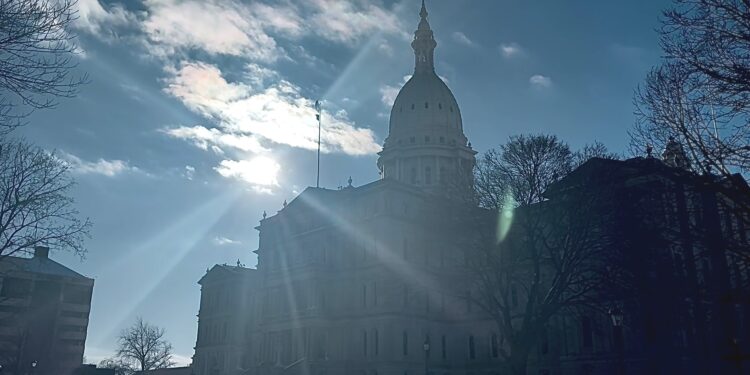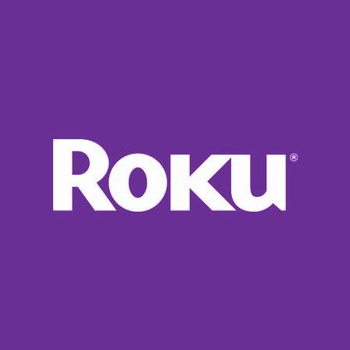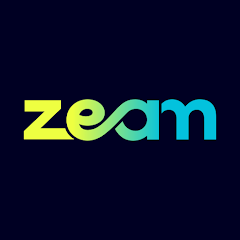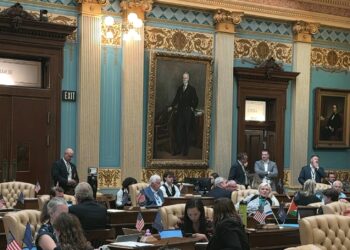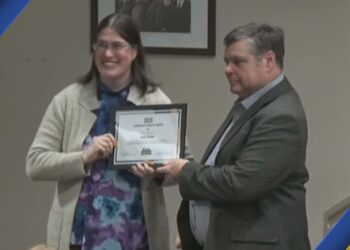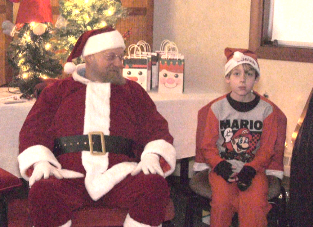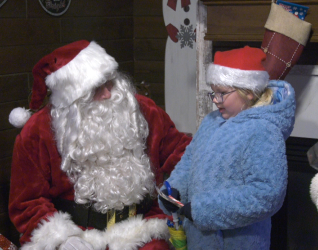DETROIT, Mich. – Detroit is hosting the NFL Draft for the first time since its inception in 1936. This three-day event is expected to bring hundreds of thousands of football fans from across the country into the state, which unfortunately will also attract bad actors seeking to scam residents of their hard-earned money, Michigan Attorney General Dana Nessel warns. In advance of the event, Nessel is reissuing her Online Ticket Purchasing alert to help residents spot a phony sale.
General entry to the NFL Draft events is currently free and only requires fans to register on the NFL One Pass app, or through the Draft website. However, there are VIP tickets for sale which are listed from hundreds to thousands of dollars. There are also associated events held throughout downtown Detroit that are free to attend.
“Unsuspecting fans could pay money for a ticket that was otherwise free or spend hundreds, or even thousands, on what turns out to be a phony screenshot of a ticket that doesn’t exist or has previously been sold,” Nessel said. “If you’re buying tickets for the NFL Draft, make sure the tickets you pay for aren’t available for free through the app, or that you’re using a trusted site to purchase authentic tickets which will actually get you into the VIP amenities.”
Bad actors have several ways to scam ticket-buyers and ticket-sellers out of their money, including payment or money app scams.
Payment app scams involve peer-to-peer (P2P) money apps like Apple Pay, Cash App, Circle Pay, Facebook Payments, Google Pay, PayPal, Square Cash, PopMoney, Zelle, and Venmo. P2P payment services are apps that require both parties to have an active user account and each account must be tied to a bank or credit card account. Once created, the pay app allows users to send money to other users by searching for their phone number, email address, or username. The money is instantly transferred electronically, and the transactions are usually free.
The attorney general has some tips to protect consumers when buying tickets online.
- Know the vendor: Consumers are encouraged to make sure they are buying from a reputable website, especially before providing any personal financial information. Anyone can set up a “spoof” website with a web address that is similar to the legitimate ticket seller’s address. Aside from potential licensing and trademark violations, “spoof” websites may offer consumers overpriced or counterfeit tickets and expose the consumer to identity theft.
- Conduct research: Consumers unfamiliar with a particular ticket vendor can call the Attorney General’s Consumer Protection Team at 877-765-8388 and ask if we have any complaints on file regarding that seller. Remember, however, that the absence of filed complaints does not guarantee a seller’s legitimacy; it simply means that the Consumer Protection Team has not received any complaints concerning the vendor. As an additional resource, consumers can research the ticket seller on the Better Business Bureau’s national website.
- Use credit: If purchasing tickets online, especially via an online auction site, it is recommended that consumers complete their transaction using a credit card. Purchasing tickets with a credit card often provides consumers with protections that they would not otherwise have if they purchased the tickets using cash, check, or apps like Venmo and Cash App. Added protections with credit include the ability to dispute a charge if an event is canceled, or if they receive counterfeit tickets that a venue refuses to honor. Try to choose sellers with long histories of satisfied customers, and make sure the online bid amount is listed in American dollars.
- Shop securely: If a website begins with “https,” the “s” indicates that the website is “secure.” Typically, the “s” will not appear in the web address until consumers access the order page of the site where they are asked to enter their personal information. Another indicator of a secure website is a graphic of a closed lock located at the bottom of the screen. Secure websites take precautions to ensure that others cannot see and copy the personal information consumers provide.
As hundreds of thousands of football enthusiasts descend on Detroit for the NFL Draft next week, Michigan Attorney General Dana Nessel is reminding consumers to be aware of potential price gouging tied to the event.
Michigan law prohibits retailers from charging prices that are “grossly in excess” of what others are charging for the same thing. However, a general rise in prices does not automatically equal price gouging. Hotels and parking structures often adjust rates for high-demand events like the NFL Draft. Nessel encourages consumers to shop around and compare rates and other expenses in advance to secure the best rate.
“Fans should be able to enjoy the Draft without being nickel-and-dimed by excessively high prices,” Nessel said. “My office will be on the lookout for any business that tries to take advantage of attendees.”
Consumers who believe they have been charged a grossly excessive price are urged to file a complaint directly with the Consumer Protection Team.
Governor Gretchen Whitmer issued a proclamation declaring April 22-28 as NFL Draft week in Michigan. Detroit will proudly host the 2024 NFL Draft at Campus Martius Park and Hart Plaza, where NFL teams will convene to select the next generation of talent.
“Detroit is fired up to host the NFL Draft,” said Governor Whitmer. “Our state is home to some of the best stories in football, and the draft will bring fans from across the country to Michigan. It’s also an opportunity to uplift the city, support local businesses and workers, and keep telling our story. Let’s seize this opportunity to show everyone what Michigan is all about and make this NFL Draft week unforgettable for both residents and visitors.”
The NFL Draft is one of the most anticipated events in sports, and this year, all eyes are on Detroit. The event will take place over a course of three days from April 25 to 27, where 32 NFL teams will convene to select new talent for their rosters. Set against the backdrop of Detroit’s dynamic cityscape, this year’s draft promises to be a showcase of both emerging football stars and the city itself. Hosting the draft is expected to bring 300,000 visitors to the city, generating hundreds of millions of dollars in business.
Governor Gretchen Whitmer proclaimed April 25, 2024, as Honolulu Blue Day in Michigan, encouraging Michiganders to wear the Honolulu Blue and Silver at the first day of the 2024 NFL Draft.
“As we bring the NFL Draft home to Detroit, I am proud to officially declare Honolulu Blue Day in Michigan,” said Governor Whitmer. “Our state is home to some of the best stories in football. The Wolverines won the natty and our Lions became America’s team as they fought their way to their first NFC Championship Game in 32 years. As we kick off the NFL Draft in Detroit, I encourage every Michigander to loudly and proudly rock their Honolulu Blue. I am excited that hundreds of thousands of fans will be coming to Motown to experience draft week, and I know they will have a great time exploring the city. Let’s celebrate our teams, our city, and show the world what Michigan is all about.”
The Detroit Lions’ team color is Honolulu Blue. This came about when the original owner George A. Richards vacationed in Hawaii and found a liking to the unique shade of the Pacific Ocean and color, thus coining this color to the team.
“Detroit is my hometown and the greatest city in the world,” said Lt. Governor Garlin Gilchrist II. “The 2024 NFL Draft will spotlight Detroit’s dynamic culture, athletics, attractions, landmarks, and resilience as a place of endless possibility and innovation. This Draft isn’t just about football. It’s about our future. Governor Whitmer and I are proud to continue our work alongside Detroiters to grow our economy, create good-paying jobs, and build a bright future for the Motor City. We hope every Detroiter and Michigander enjoys what Detroit has to offer during the 2024 Draft. Go Lions!”
Fans near and far will have the opportunity to visit the iconic venues of Campus Martius Park and Hart Plaza, where the draft will take place to select the next generation of talent. This event will shine light on the hardworking Michiganders who put the world on wheels. Detroit is a city that has defined art, music, and culture for decades. It is the epitome of grit, embodied by the best story in the NFL—the Detroit Lions. Detroit is a special place with a powerful story that can show the world how to reimagine, rebuild, and rise.
Governor Whitmer wrote to the NFL in March 2021, supporting Detroit’s bid to be the home of the 2024 NFL Draft. A year later, thanks to the hard work and advocacy of so many Michiganders, Detroit landed the bid. To view the full letter, click the link below:
To view the full proclamation, click here.
As Detroit prepares to host its first-ever NFL Draft April 25-27, Michigan Attorney General Dana Nessel warns residents about parking scams targeting attendees.
“Hosting the Draft is a major win for Detroit and Michigan, but this exciting event comes with the potential risk of parking scams,” Nessel said. “By following some simple tips, you can avoid falling victim to deceptive parking practices and ensure your car stays safe during the event.”
The city of Detroit has announced many street closures throughout downtown to accommodate the many associated events. Eager visitors arriving by car often park in privately owned lots, but sometimes scammers take advantage of these events to sell parking spaces for lots they don’t have authority over – which could lead to cars being ticketed, towed, or even worse, stolen.
Nessel encourages residents to ask for a receipt or parking ticket upon payment, to never give their keys to the attendant unless there are posted valet signs, and they’ve confirmed ahead of time with the location that the valet service is one they offer.
Another scam involves bad actors issuing fake parking tickets. The Better Business Bureau (BBB) warns that technology makes it easy for bad actors to create authentic appearing parking tickets. The fake ticket will ask consumers to pay online or use a QR code. Nessel reminds residents to visit that municipality’s website directly or to call the court and verify the existence of the ticket before following the web or QR code directions.
The BBB offers the following advice to avoid falling for this scam:
- Know before you park. Before visiting a new place, research available parking and local parking requirements. Tourists with out-of-state plates are often the preferred target for parking scams because they are likely unfamiliar with local parking laws.
- Examine the citation carefully. Scammers can imitate logos and city office names, but an imitation website is usually where the scam comes to light. Do an internet search for the city’s official parking ticket websites and compare what’s found to what is on the ticket. Keep in mind that government sites should end in a .gov or .ca (in Canada) designation, and if there is a payment page, it should always have a secure connection.
- Double-check the name checks should be made out to. If the ticket allows for payment by check, take a closer look at the entity and address to which you are instructed to mail the check. Checks should generally be made out to a specific government organization, not a string of initials or personal names.
- Pay traffic citations by credit card when possible. It will be easier to contest fraudulent charges if consumers discover they’ve been scammed down the road.
- consumers provide.
To file a complaint with the Attorney General, or get additional information, contact:
Consumer Protection Team
P.O. Box 30213
Lansing, MI 48909
517-335-7599
Fax: 517-241-3771
Toll-free: 877-765-8388
Online complaint form

